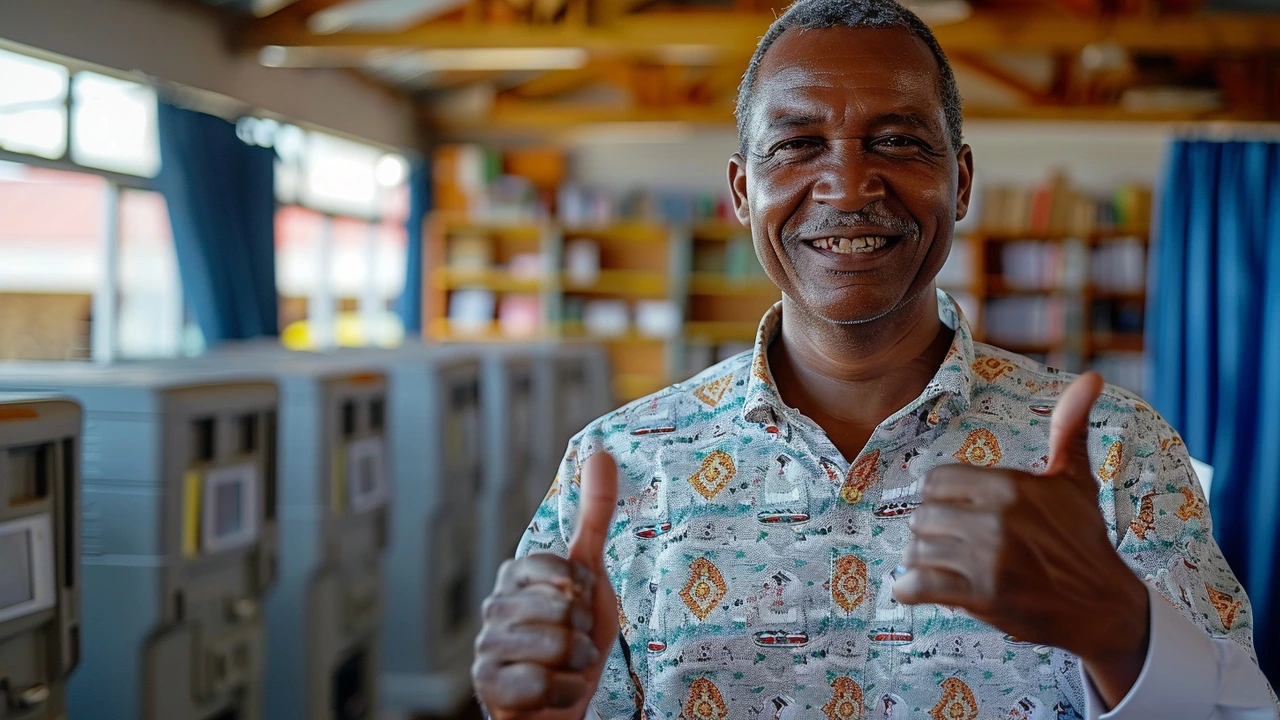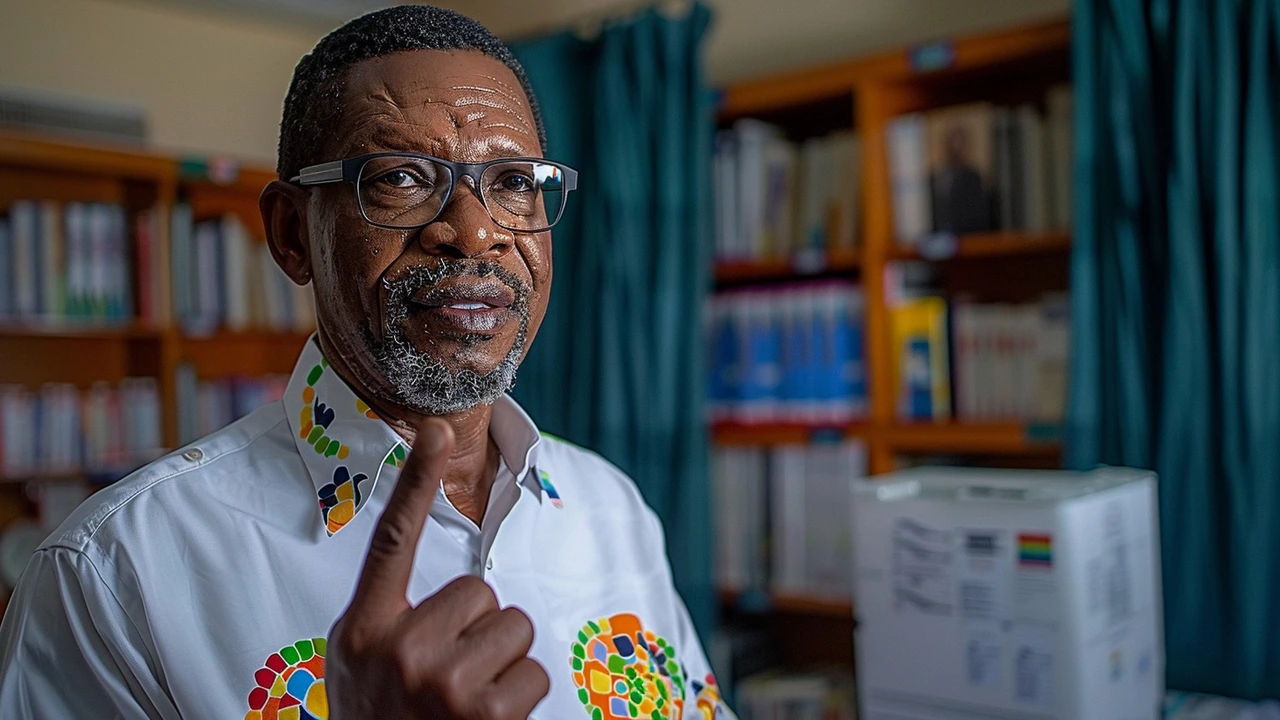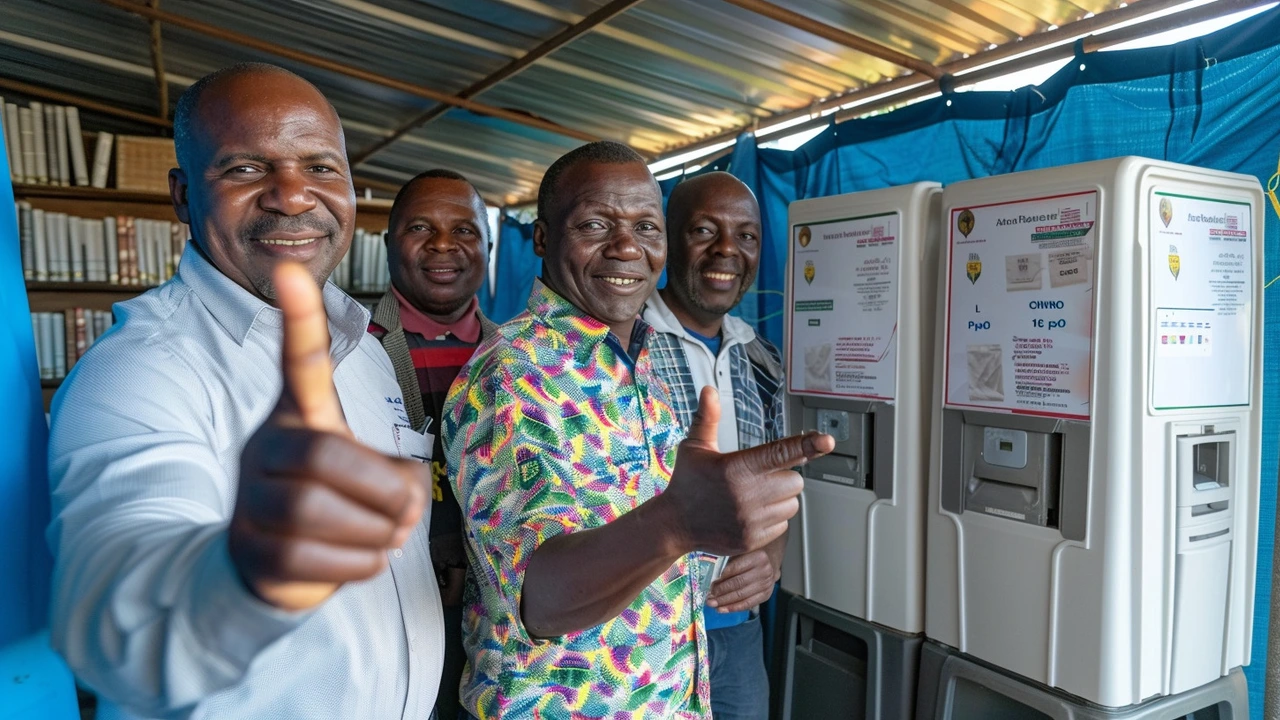The Build-Up to the 2024 Elections
The clock is ticking toward the 2024 general elections in KwaZulu-Natal (KZN), and the atmosphere is electric. Political party leaders in the province are not just rallying their supporters but are also ready to join the 5.7 million registered voters in casting their votes. For months, campaigns have flooded the streets, airwaves, and social media platforms, each party vying for a share of the ever-critical electorate.
Siboniso Duma, the provincial chairperson for the African National Congress (ANC), has been vocally confident about his party's chances. For the past eight months, Duma and fellow ANC members have been canvassing across KZN, urging support for their platform. In his view, the ANC stands a strong chance of securing an outright majority this time around, despite recent polls suggesting otherwise.
ANC: Traditional Stronghold Under Threat?
Siboniso Duma's optimism isn't without merit, given that the ANC has historically been a dominant force in KZN politics. However, this traditional stronghold is showing signs of erosion. Duma is slated to cast his vote at the Kloof Methodist Church in eThekwini at 9 am on Wednesday. Yet, his confidence belies the reality, as recent surveys indicate a tougher battlefield. No party is expected to achieve an outright majority in the province, hinting at potentially fragmented political control post-election.
A Diverse Political Landscape
On the flipside, Velenkosini Hlabisa of the Inkatha Freedom Party (IFP) has distinctly ruled out any possibility of a coalition with the ANC. His firm stance underscores the competitive nature of these elections. Hlabisa will cast his vote at the Mthekelezi Primary School in Hlabisa on Tuesday. A staple in KZN’s political scene, the IFP hopes to capitalize on disillusionment with the ANC and make meaningful gains.
Then there's Chris Pappas, the Democratic Alliance (DA) provincial premier candidate, who will cast his special vote at Thembelihle Primary School in Howick on Tuesday at 10.30 am. The DA, often seen as a challenger to the ANC’s dominance, is focusing on transparency and good governance as their main campaign pillars. Pappas and other DA leaders have been intensively campaigning to attract voters frustrated with persistent issues like corruption and service delivery failures.

New Faces on the Horizon
Enter ActionSA, a relatively new player in KZN's political arena. Contesting the provincial and national polls for the first time, ActionSA's KZN premier candidate Zwakele Mncwango will cast his vote on Wednesday. Mncwango has already laid out ambitious plans, intending to visit various voting stations including Mangqwashu Primary School in kwaNongoma and Pitlochry Primary School in Westville, eThekwini Metro. ActionSA’s entrance signifies a changing political landscape where new voices are increasingly gaining traction among voters disenchanted with established parties.
The Broader Picture
Given the fragmented nature of voter allegiances, the IEC has a monumental task ahead in ensuring a smooth voting process. They’ve set up 4,874 voting stations across the province, prepared to handle the influx of voters. Despite logistical challenges, the commission is confident that the elections will be conducted fairly and efficiently. Nationally, the elections are expected to be closely watched, offering insight into the shifting dynamics within South Africa's political landscape.
High Stakes and Uncertain Outcomes
The stakes are undoubtedly high as KZN remains a pivotal province in South African politics. A malaise of political uncertainty has enveloped the region, with the majority of surveyed voters indicating disenchantment with the status quo. Many believe it's anyone's game, setting the stage for potentially unprecedented outcomes. The lack of an outright favorite has added layers of suspense to an already tense atmosphere.
Analysts and political observers are keenly watching KZN, anticipating that this province could offer a litmus test for national political sentiments. If no party achieves an outright majority as predicted, coalition talks will become inevitable, reshaping KZN's political landscape for years to come. Political strategies will need to be as fluid as the voter dynamics they’re trying to capture.

Voter Sentiments and Issues
Voter concerns revolve predominantly around service delivery, unemployment, and corruption. Over the past few years, promises have been made by all parties, but tangible change seems elusive. The electorate is now more engaged and informed, leveraging social media and other platforms to hold leaders accountable. As the voting day approaches, the focus remains on whether these leaders can inspire confidence among an increasingly skeptical populace.
Additionally, younger voters, making up a significant portion of the registered voter base, are expected to influence the outcome substantially. This demographic, often disenchanted with traditional party politics, could be the wild card that disrupts conventional voting patterns.
IEC’s Role and Preparedness
The IEC's role in managing the elections cannot be understated. In a province already dealing with socio-economic challenges, ensuring the credibility of the election process is vital. They’ve been busy training staff, preparing voting stations, and running public awareness campaigns. Despite logistical hurdles, they remain committed to delivering a fair and transparent election process.
The anticipation is palpable, and as voting day draws near, the political landscape in KZN could be on the brink of transformation. Citizens, political analysts, and the country at large are waiting with bated breath to witness what could be one of the most consequential elections in the province's recent history.


christian lassen
May 29, 2024 AT 05:13Jack Fiore
May 29, 2024 AT 22:05Antony Delagarza
May 30, 2024 AT 04:27Murray Hill
May 30, 2024 AT 10:08Letetia Mullenix
May 30, 2024 AT 23:24Morgan Skinner
May 31, 2024 AT 13:37Rachel Marr
May 31, 2024 AT 16:27Kasey Lexenstar
May 31, 2024 AT 20:34Trevor Mahoney
June 1, 2024 AT 08:48Jitendra Patil
June 1, 2024 AT 16:21Michelle Kaltenberg
June 2, 2024 AT 07:21Jared Ferreira
June 2, 2024 AT 20:45Kurt Simonsen
June 3, 2024 AT 14:16